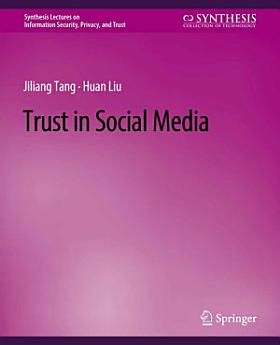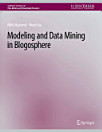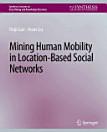关于此电子书
Social media greatly enables people to participate in online activities and shatters the barrier for online users to create and share information at any place at any time. However, the explosion of user-generated content poses novel challenges for online users to find relevant information, or, in other words, exacerbates the information overload problem. On the other hand, the quality of user-generated content can vary dramatically from excellence to abuse or spam, resulting in a problem of information credibility. The study and understanding of trust can lead to an effective approach to addressing both information overload and credibility problems. Trust refers to a relationship between a trustor (the subject that trusts a target entity) and a trustee (the entity that is trusted). In the context of social media, trust provides evidence about with whom we can trust to share information and from whom we can accept information without additional verification. With trust, we make the mental shortcut by directly seeking information from trustees or trusted entities, which serves a two-fold purpose: without being overwhelmed by excessive information (i.e., mitigated information overload) and with credible information due to the trust placed on the information provider (i.e., increased information credibility). Therefore, trust is crucial in helping social media users collect relevant and reliable information, and trust in social media is a research topic of increasing importance and of practical significance. This book takes a computational perspective to offer an overview of characteristics and elements of trust and illuminate a wide range of computational tasks of trust. It introduces basic concepts, deliberates challenges and opportunities, reviews state-of-the-art algorithms, and elaborates effective evaluation methods in the trust study. In particular, we illustrate properties and representation models of trust, elucidate trust prediction with representative algorithms, and demonstrate real-world applications where trust is explicitly used. As a new dimension of the trust study, we discuss the concept of distrust and its roles in trust computing.
作者简介
Jiliang Tang is a research scientist at Yahoo! Labs. He received his Ph.D. in computer science at Arizona State University in 2014, and B.S./M.S. from Beijing Institute of Technology in 2008 and 2010, respectively. His research interests include trust/distrust computing, feature selection, social computing, data mining, and machine learning. He was awarded the Runner Upof SIGKDD Dissertation Award 2015, Dean's Dissertation Award 2015, Outstanding Graduating Computer Science Ph.D. Student 2015, the 2014 ASU President's Award for Innovation, Best Paper Shortlist in WSDM13, the 3rd Place Dedicated Task 2 Next Location Prediction of Nokia Mobile Data Challenge 2012, University Graduate Fellowship, and various Student Travel Awards and Scholarships. He co-presented three tutorials in KDD2014, WWW2014, and Recsys2014, and has published innovative works in highly ranked journals and top conference proceedings such as ACM Computing Survey, IEEE TKDE, ACM TKDD, DMKD, ACM SIGKDD, SIGIR, WWW, WSDM, SDM, ICDM, IJCAI, AAAI, and CIKM.Huan Liu is a professor of computer science and engineering at Arizona State University. He obtained his Ph.D. in computer science at University of Southern California and B.Eng. in computer science and electrical engineering at Shanghai JiaoTong University. Before he joined ASU, he worked at Telecom Australia Research Labs and was on the faculty at National University of Singapore. He was recognized for excellence in teaching and research in computer science and engineering at Arizona State University. His research interests are in data mining, machine learning, social computing, and artificial intelligence, investigating problems that arise in many real-world, data-intensive applications with high-dimensional data of disparate forms such as social media. His well-cited publications include books, book chapters, encyclopedia entries, as well as conference and journal papers. He serves on journal editorial boards and numerous conference program committees, and is a founding organizer of the International Conference Series on Social Computing, Behavioral-Cultural Modeling, and Prediction (http://sbp.asu.edu/). He is an IEEE Fellow. Updated information can be found at http://www.public.asu.edu/~huanliu
为此电子书评分
欢迎向我们提供反馈意见。
如何阅读
智能手机和平板电脑
笔记本电脑和台式机
您可以使用计算机的网络浏览器聆听您在 Google Play 购买的有声读物。
电子阅读器和其他设备
如果要在 Kobo 电子阅读器等电子墨水屏设备上阅读,您需要下载一个文件,并将其传输到相应设备上。若要将文件传输到受支持的电子阅读器上,请按帮助中心内的详细说明操作。






